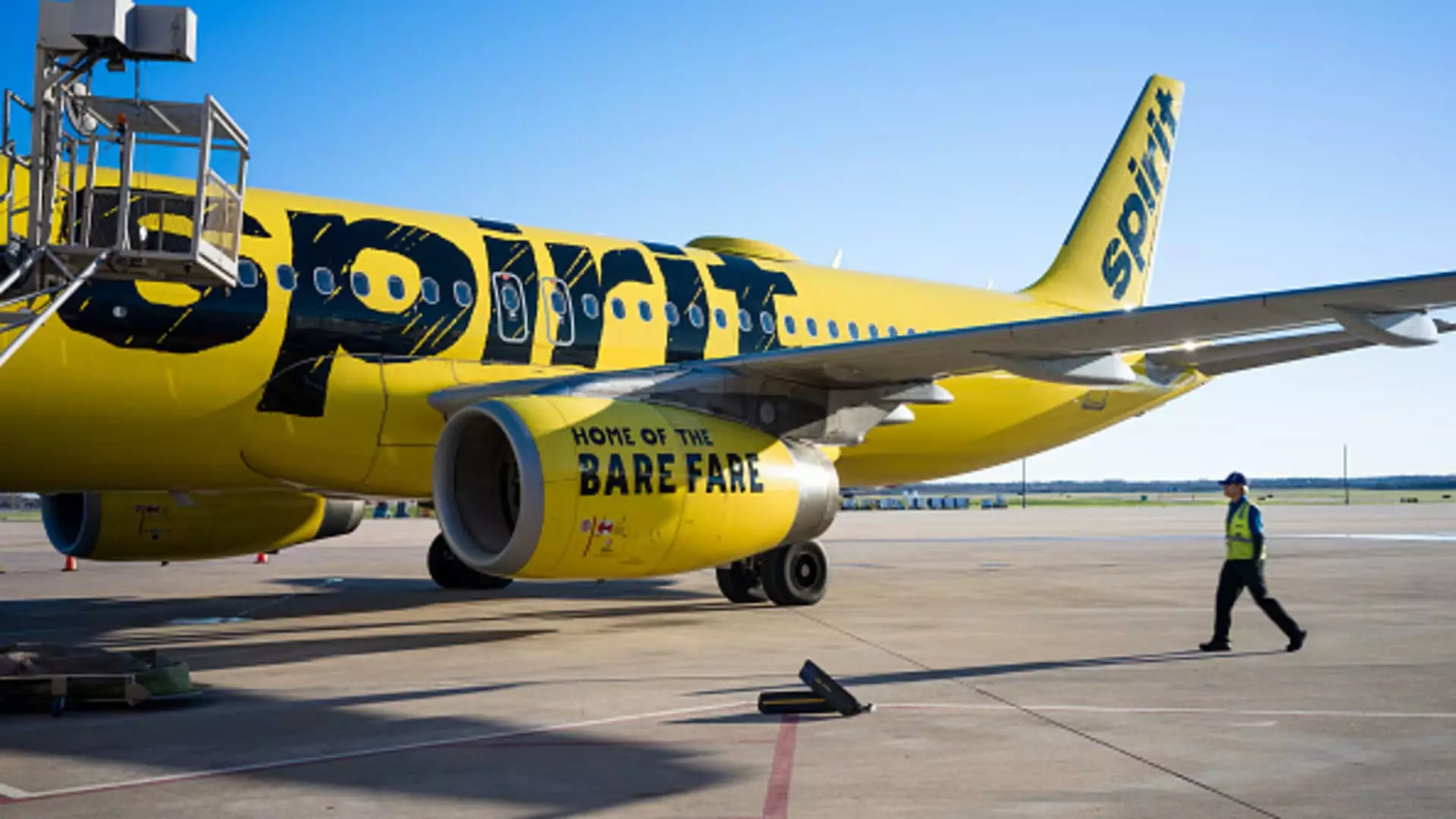Spirit Airlines recently announced that it will be deferring deliveries of new Airbus planes and implementing pilot furloughs as part of its strategy to improve liquidity. The CEO, Ted Christie, emphasized the necessity of these steps for ensuring a strong and profitable future for the airline. By deferring all Airbus planes scheduled for delivery between the second quarter of 2025 and the end of 2026 to 2030 and 2031, Spirit aims to boost its liquidity by approximately $340 million over the next two years. This decision comes in light of the competitive challenges faced by the airline due to the grounding of many of its Airbus planes following a Pratt & Whitney engine recall.
The pilot furloughs, affecting around 260 pilots, are set to take effect in September. While Spirit had already put leaves of absence in place for flight attendants, there are currently no plans for cabin crew furloughs, according to the Association of Flight Attendants. The closure of the Atlantic City, New Jersey, crew base will lead to staff reassignments. The Air Line Pilots Association, Spirit pilots’ union, is exploring voluntary measures to minimize the number of pilot furloughs. In the midst of these operational adjustments, the airline seeks to streamline its operations and focus on its core business while adapting to changes in the competitive landscape.
Industry-wide Challenges in Aviation
Spirit’s decision to defer aircraft deliveries and implement pilot furloughs reflects broader challenges faced by the aviation industry. Other airlines have also made adjustments to their hiring and training practices due to the scarcity of aircraft, in stark contrast to the previous pilot shortage experienced during the peak of the pandemic. United Airlines, for example, is offering unpaid time off for pilots next month due to delays in plane arrivals from Boeing. These developments indicate a shift in the industry dynamics as airlines navigate through recovery and adaptation to the changing market conditions.
As Spirit Airlines moves forward with its financial restructuring and operational adjustments, the airline is set to publish its next financial outlook for the quarter and full year in the coming week. The focus on boosting liquidity, optimizing operations, and aligning with the evolving market dynamics underscores the airline’s determination to navigate through the current challenges and emerge stronger in the future. By implementing strategic decisions such as deferring aircraft deliveries and addressing pilot furloughs, Spirit aims to lay a solid foundation for sustainable growth and profitability in the long run while ensuring its competitive position in the aviation industry.

